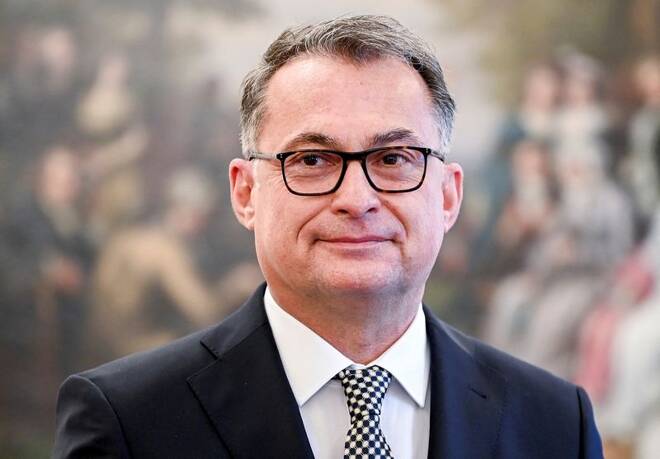Advertisement
Advertisement
ECB should keep sights on policy normalisation as inflation soars: Bundesbank
By:
FRANKFURT (Reuters) - German inflation is likely to be higher this year than a recently raised forecast and the European Central Bank should keep its focus on normalising monetary policy, Bundesbank President Joachim Nagel said on Wednesday.
FRANKFURT (Reuters) – German inflation is likely to be higher this year than a recently raised forecast and the European Central Bank should keep its focus on normalising monetary policy, Bundesbank President Joachim Nagel said on Wednesday.
With inflation pressures intensifying well before Russia’s invasion of Ukraine, the ECB looked all but certain to accelerate its exit from stimulus at the March meeting. In February, euro zone inflation soared to a record high of 5.8% last month, data from Eurostat showed on Wednesday.
But the conflict in Ukraine has thrown the ECB’s plans into turmoil, leaving its March 10 policy decision in limbo.
“If price stability requires it, the ECB Governing Council must adjust its monetary policy course,” Nagel, who took over at the Bundesbank in January, said in the German central bank’s annual report. “We need to keep our sights trained on the normalisation of our monetary policy.
Nagel, however stopped short of making the case for the ECB to curb stimulus already on March 10.
ECB Policy hawks, including Nagel, have argued for quicker normalisation, including a faster tapering of bond buys, but have appeared to step back since the outbreak of war.
markets this week priced out of lot of their policy tightening expectations. Ten-year German yields, in positive territory last month, fell to minus 40 basis points this week while only around 20 basis points of rates hikes are now priced in versus about 50 basis points just two weeks ago.
“The war will probably affect the German economy primarily through energy prices, foreign trade and increased uncertainty,” Nagel said. “How strong the influence will be cannot be reliably estimated at this time.”
(Reporting by Balazs Koranyi; editing by John Stonestreet)
About the Author
Reuterscontributor
Reuters, the news and media division of Thomson Reuters, is the world’s largest international multimedia news provider reaching more than one billion people every day. Reuters provides trusted business, financial, national, and international news to professionals via Thomson Reuters desktops, the world's media organizations, and directly to consumers at Reuters.com and via Reuters TV. Learn more about Thomson Reuters products:
Advertisement
